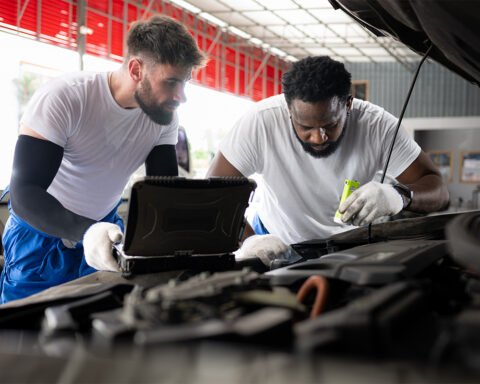Maintaining optimal vehicle performance is not solely the responsibility of technicians—drivers play a critical role in ensuring their cars remain efficient, reliable, and safe. Regardless of whether you’re a daily commuter or an occasional driver, understanding how to care for your vehicle is essential.
Here are fifteen professional tips that every driver should know to enhance vehicle performance, extend lifespan, and reduce long-term maintenance costs.
Adhere to Scheduled Maintenance Intervals
Regular servicing is fundamental to vehicle health. Follow the manufacturer’s recommended maintenance schedule to ensure vital components such as the engine, transmission, and brakes are functioning optimally. Preventive maintenance reduces the risk of unexpected breakdowns and costly repairs.
Monitor Tire Health Consistently
Tires directly impact fuel economy, handling, and overall safety. Check tire pressure regularly, ensure proper wheel alignment, and rotate tires as recommended. Worn or improperly inflated tires can compromise performance and pose safety risks.
Respond Promptly to Dashboard Warning Indicators
Modern vehicles are equipped with sophisticated diagnostic systems. Warning lights such as the check engine, ABS, or battery indicators should never be ignored. Immediate attention can prevent minor issues from escalating into major mechanical failures.
Use Manufacturer Recommended Fuel
Always use the fuel grade specified in your vehicle’s manual. Higher-octane fuel is not necessarily better unless required. Using the correct fuel ensures engine efficiency and prevents unnecessary internal damage.
Replace Air Filters at Recommended Intervals
A clean air filter promotes better airflow to the engine, improving fuel combustion and overall efficiency. Neglected filters can reduce engine performance and increase emissions. Periodic inspections are essential.
Maintain Optimal Engine Temperature
An efficient cooling system prevents overheating and protects the engine from thermal damage. Regularly check coolant levels, inspect hoses, and ensure the radiator is functioning properly, especially during extreme weather conditions.
Ensure Battery Reliability
Battery failure is a common cause of vehicle breakdowns. Regularly inspect terminals for corrosion, verify secure connections, and replace the battery as per the manufacturer’s guidelines to ensure uninterrupted performance.
Adopt Smooth Driving Habits
Aggressive acceleration, abrupt braking, and excessive idling can strain critical components and reduce overall efficiency. Practicing smooth and controlled driving promotes engine longevity and better fuel economy.
Choose Quality Engine Oil
Engine oil is vital for lubrication and heat dissipation. Use high-quality, manufacturer-approved oil and change it at prescribed intervals. Doing so minimizes wear and enhances engine efficiency.
Avoid Excessive Load
Overloading a vehicle stresses the suspension, braking system, and drivetrain, while also increasing fuel consumption. Always adhere to the manufacturer’s load capacity recommendations for optimal performance.
Maintain Vehicle Cleanliness
Regular cleaning protects your vehicle’s exterior from corrosive contaminants and preserves the paintwork. A clean interior also contributes to a healthier cabin environment and improves driver comfort and focus.
Address Unusual Sounds Immediately
Abnormal noises such as grinding, rattling, or knocking often indicate underlying mechanical issues. Prompt diagnostics and repairs can prevent further damage and ensure vehicle reliability.
Inspect Brake System Frequently
Brakes are among the most critical safety systems. Unusual sensations such as squealing, soft pedal response, or increased stopping distance warrant immediate inspection and maintenance.
Allow Engine Warm-Up During Cold Weather
In colder climates, allow your vehicle a brief warm-up period to ensure engine oil reaches optimal viscosity and circulates effectively. This reduces initial wear on engine components during startup.
Conduct Seasonal Vehicle Checks
Each season presents unique demands on your vehicle. Prior to winter or summer, ensure fluid levels, HVAC systems, tires, and battery are thoroughly inspected to maintain consistent year-round performance.
Drive Smarter: Master the Essentials for Peak Vehicle Performance and Safety
Enhancing vehicle performance begins with informed and responsible ownership. By implementing these fifteen professional car care practices, drivers can achieve improved efficiency, reduced maintenance costs, and a more enjoyable driving experience. A well-maintained vehicle not only performs better—it also ensures safety for everyone on the road.







